Navigating a resignation can be a challenging task, especially after engaging in unsuccessful negotiations. It's vital to express your gratitude towards the company while clearly stating your intention to move on. This balance helps maintain professionalism and leaves the door open for future opportunities. If you're considering putting pen to paper, stick around as we walk you through a compelling resignation letter template that you can easily tailor to fit your situation.
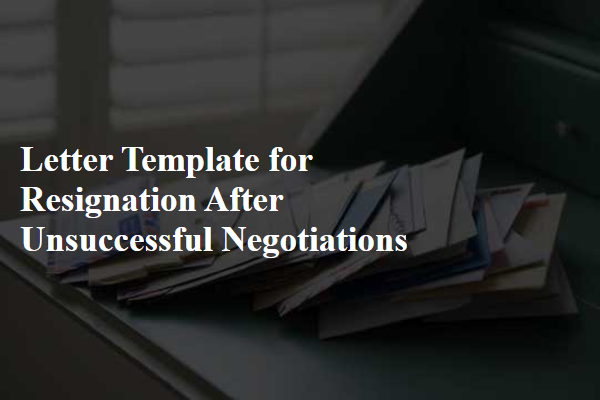
Clear Reason for Resignation
After extensive negotiations regarding employment terms and conditions at XYZ Corporation, despite my commitment to finding a mutually beneficial agreement, I have concluded that the desired outcomes were not achieved. The inability to reach a consensus on crucial aspects, including salary adjustments and work-life balance initiatives, has led me to reassess my career objectives. Moving forward, I will be pursuing opportunities that align more closely with my professional aspirations and personal values. My final working day will be [insert date], ensuring a smooth transition. Thank you for the experiences gained during my tenure at the company.
Professional Tone
Resignation from a position can be a significant step influenced by various factors, including challenges faced during negotiations regarding terms of employment. Succumbing to frustration from unsuccessful dialogues may lead an employee to seek new opportunities. This decision can signal a desire for growth and satisfaction, promoting the pursuit of a workplace that values employee input. Ultimately, this could foster personal development and career advancement. A well-structured resignation notice highlights respect for the employer and professionalism, regardless of dissatisfaction with prior negotiations. It should also express gratitude for experiences gained during tenure, paving the way for potential future collaborations or references.
Gratitude for Opportunities
During my tenure at XYZ Company (established in 2010), I had the privilege to work alongside a talented team dedicated to excellence in our projects. The diverse opportunities provided (including training sessions in 2021 and major client project wins) have significantly contributed to my professional growth. However, despite extensive discussions and efforts to address my concerns regarding career advancement and compensation, we could not reach a mutually beneficial agreement. Consequently, I have decided to resign from my position, effective two weeks from today. I remain appreciative of the experiences and skills gained during my time here, particularly the collaborative atmosphere and the supportive leadership team.
Offer to Assist with Transition
In light of recent unsuccessful negotiations regarding my position at [Company Name], I have made the difficult decision to resign from my role as [Your Position] effective [Last Working Day, typically two weeks from the date of resignation]. Despite my dedication to the team's objectives and the contributions made during my tenure, the terms of employment do not align with my professional aspirations. I am committed to ensuring a smooth transition during my remaining time. I offer to assist with transferring my responsibilities and share my insights to support my colleagues in maintaining workflow continuity. My experiences with [specific projects or teams] have been invaluable, and I hope to leave behind a positive impact. Thank you for the opportunities provided during my time at [Company Name].
Contact Information for Future Correspondence
When resigning from a position after unsuccessful negotiations, it is important to include your contact information for future correspondence. This detail enhances professionalism and maintains open lines of communication. Position title, date of resignation, and a brief mention of the negotiation attempt can be incorporated into the resignation letter. Include phone numbers, email addresses, or LinkedIn profiles for future networking opportunities. Providing this information encourages future connections and potential collaborations in the professional field.
Letter Template For Resignation After Unsuccessful Negotiations Samples
Letter template of resignation following unproductive salary discussions.
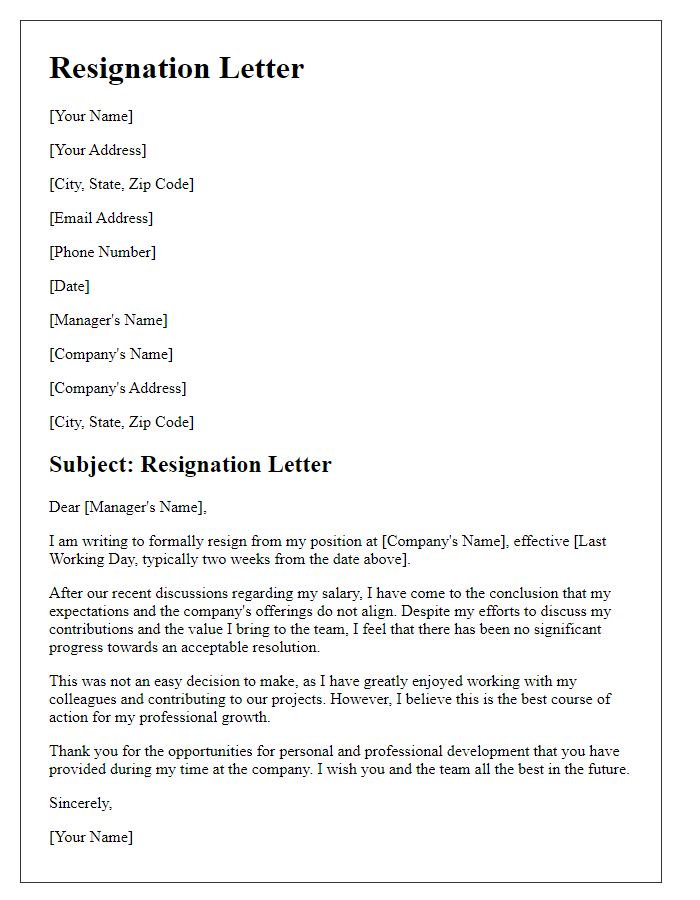
Letter template of resignation stemming from unsatisfactory negotiation results.
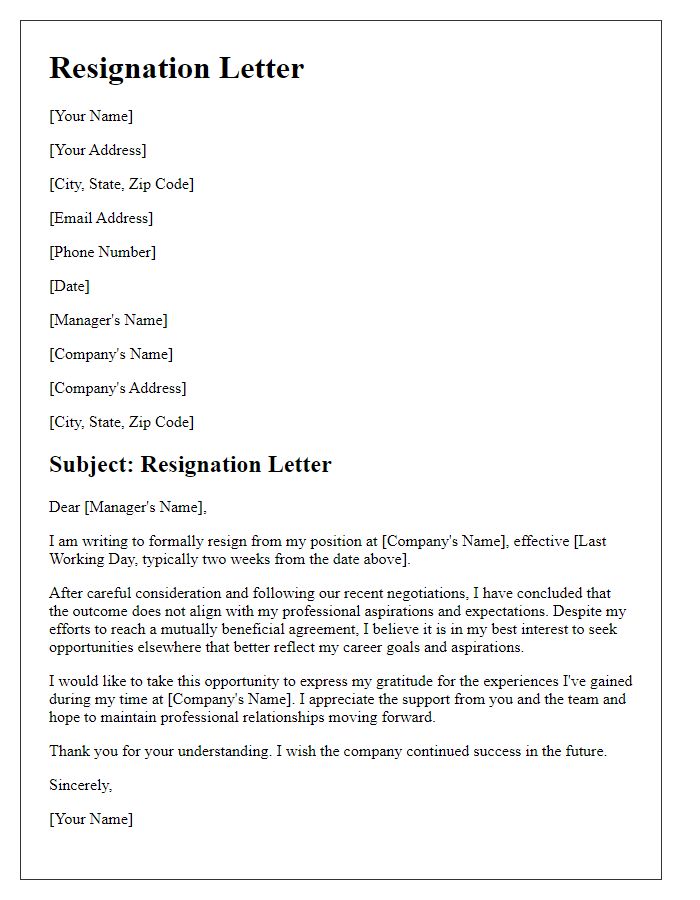
Letter template of resignation related to ineffective compensation talks.
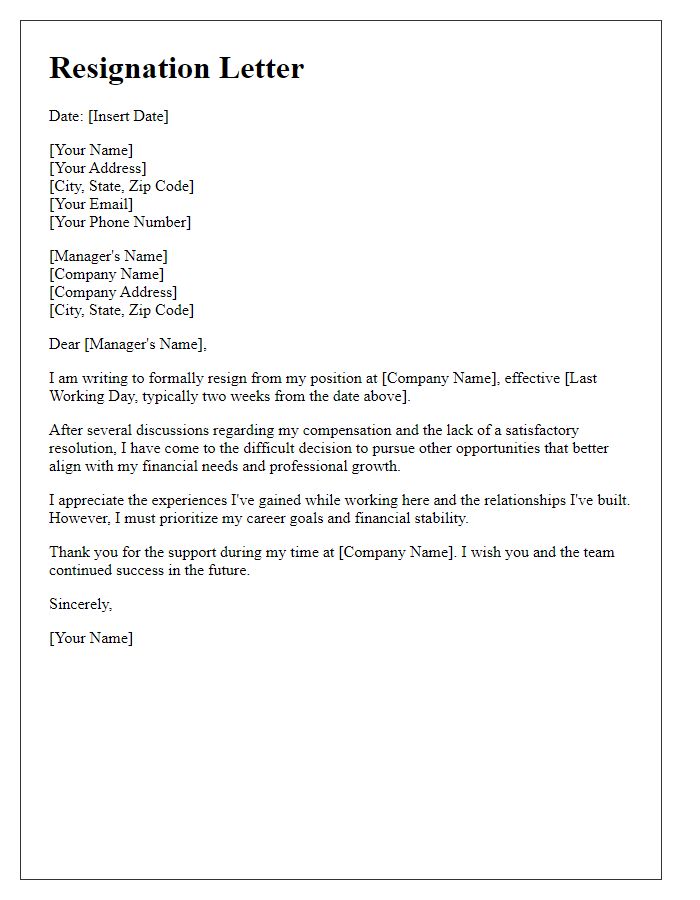
Letter template of resignation following inadequate benefits negotiations.
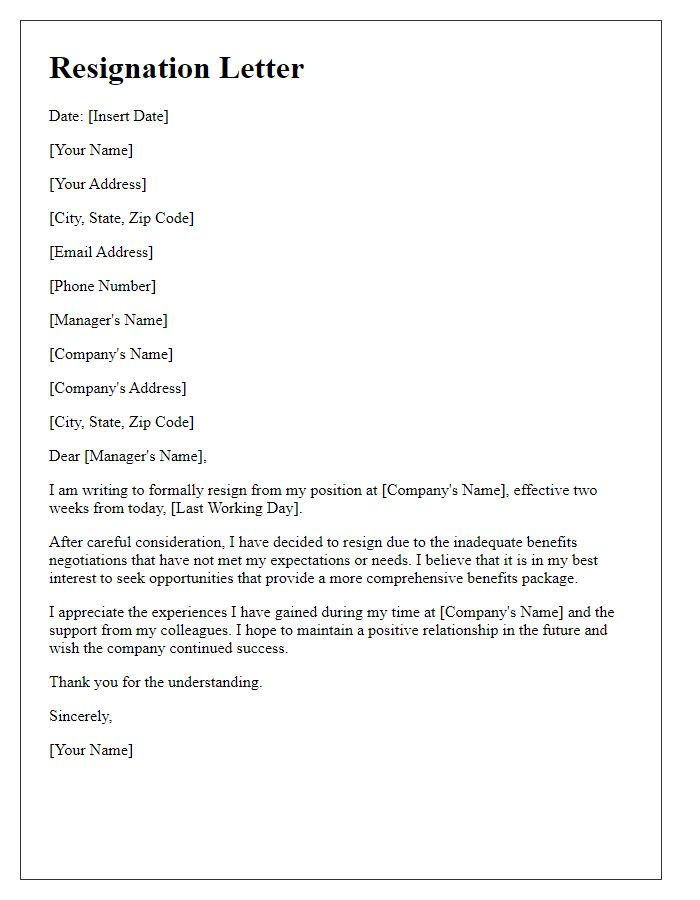
Letter template of resignation after disappointing negotiation outcomes.
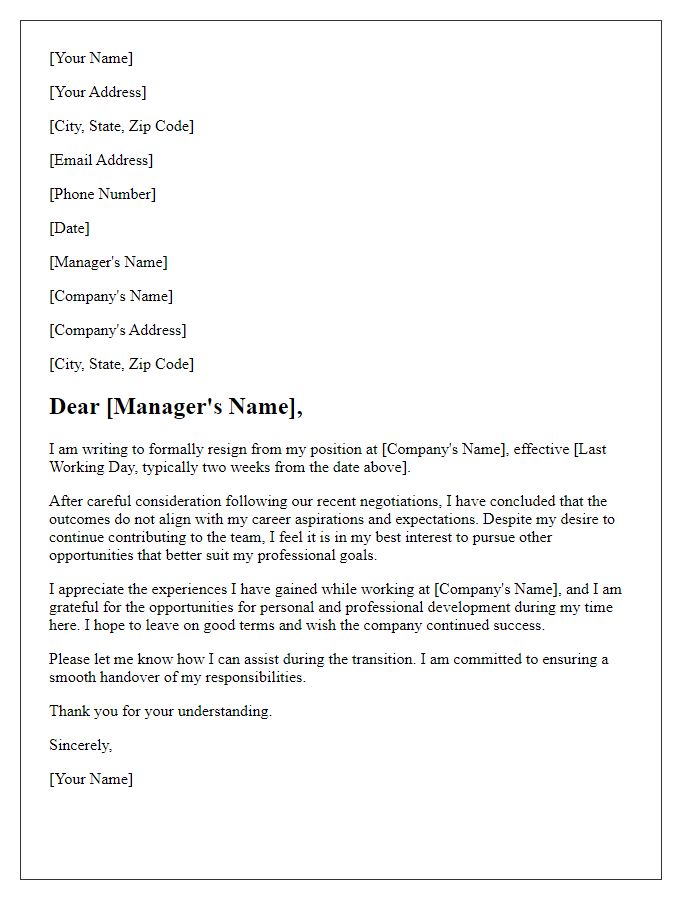
Letter template of resignation prompted by unfruitful agreement discussions.
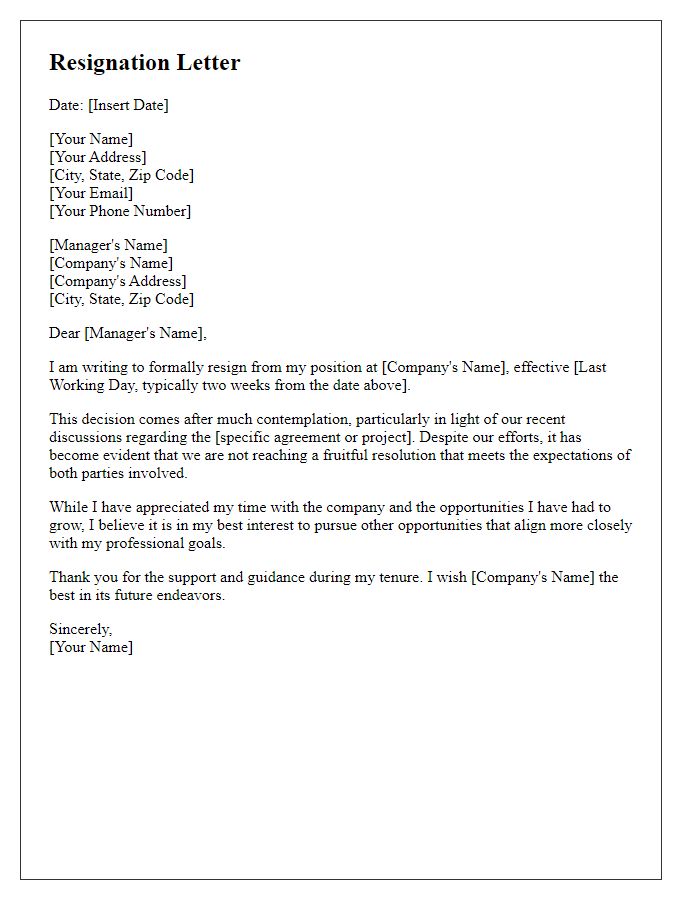

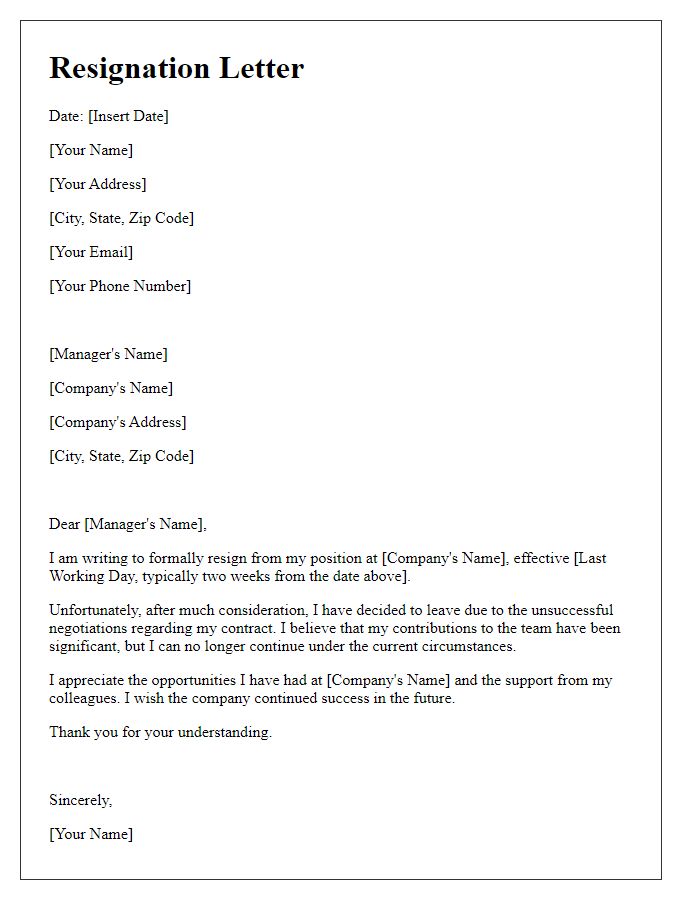
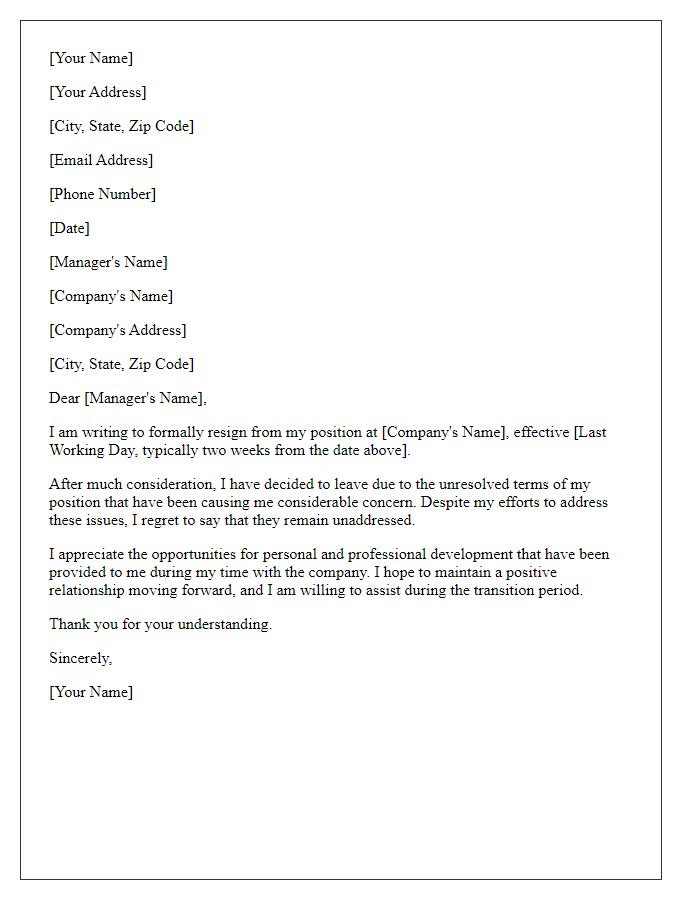
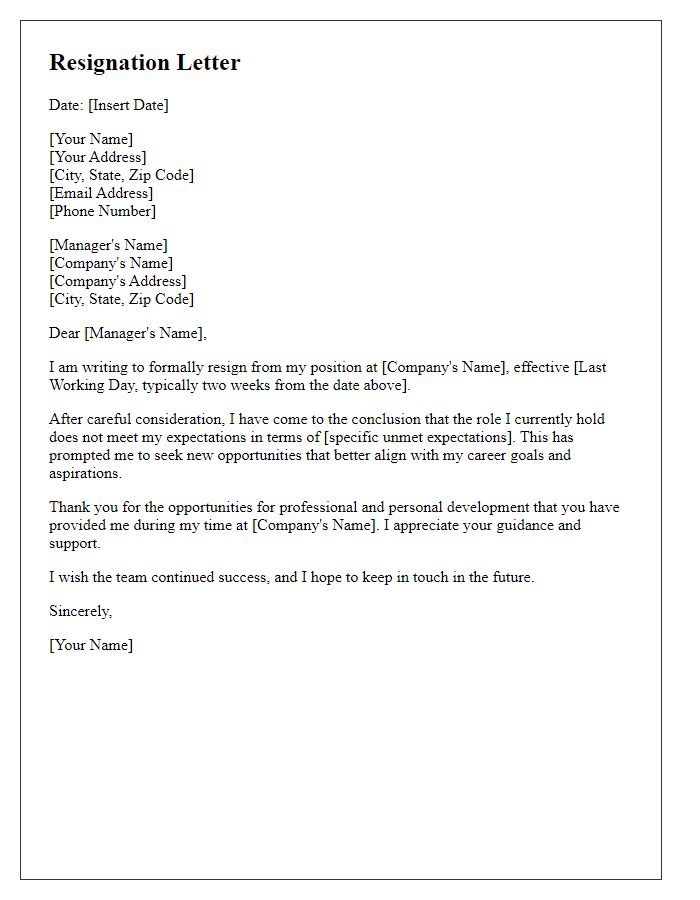
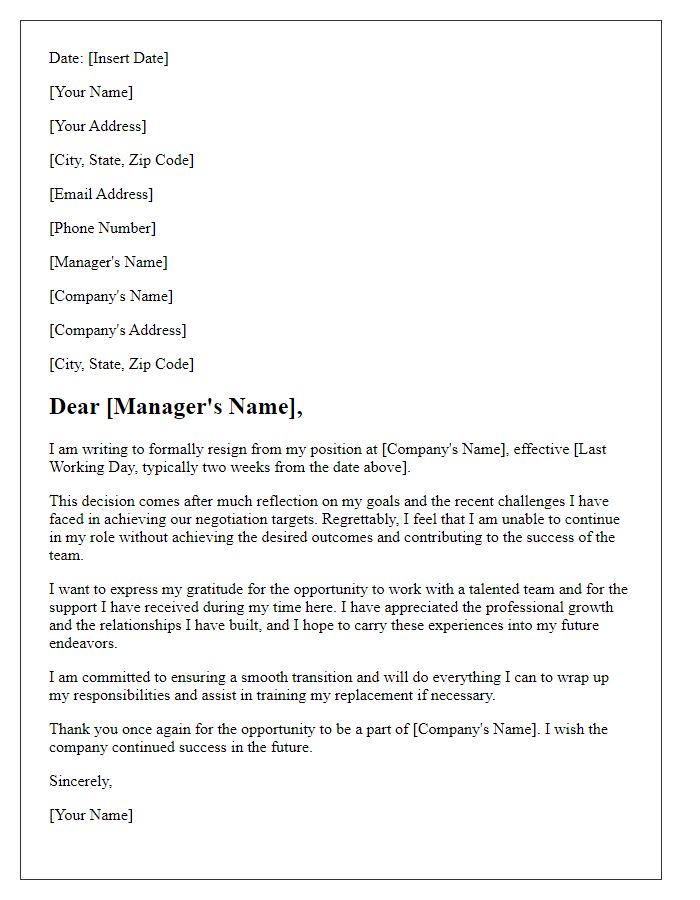


Comments